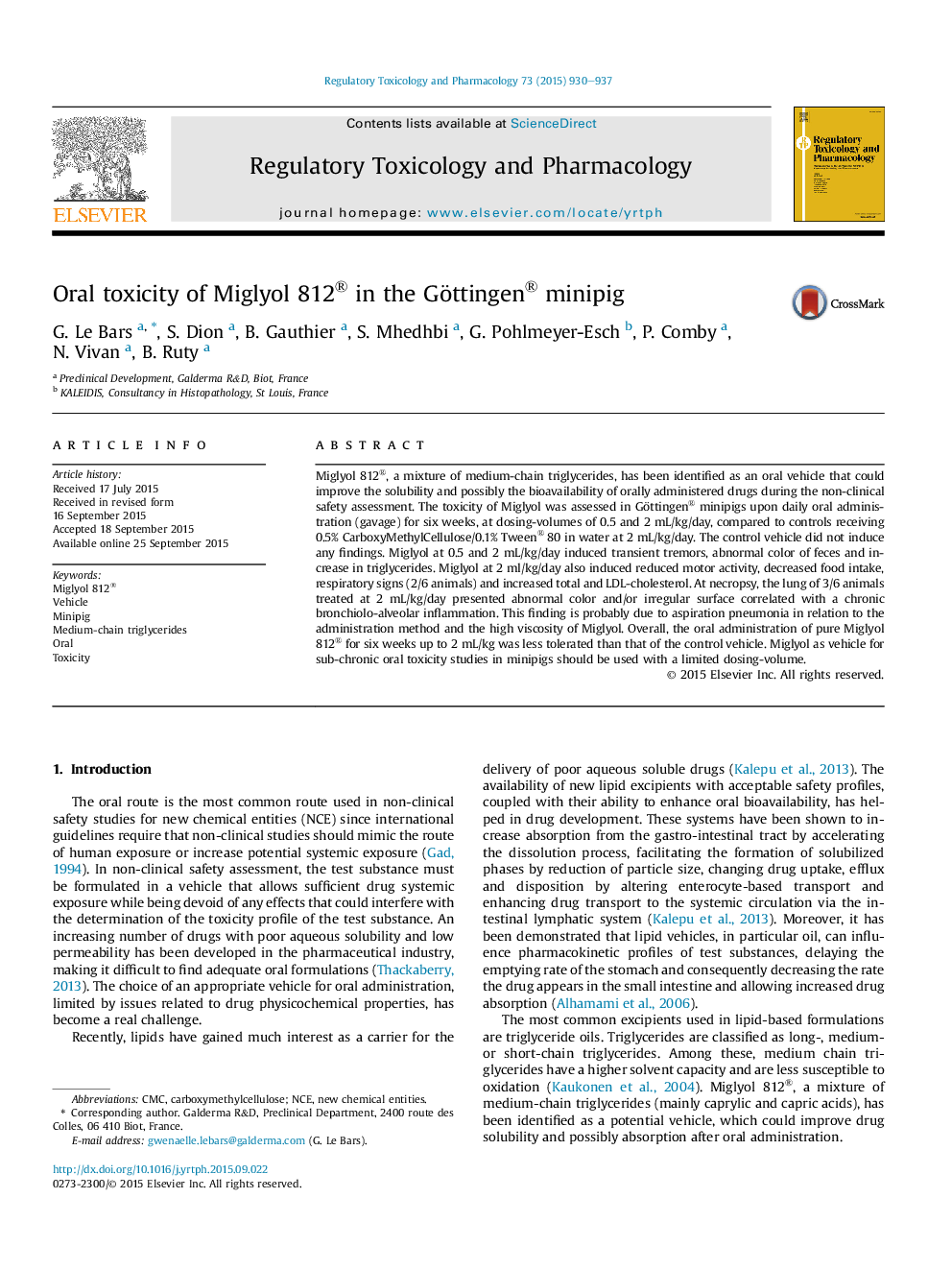| Article ID | Journal | Published Year | Pages | File Type |
|---|---|---|---|---|
| 5856256 | Regulatory Toxicology and Pharmacology | 2015 | 8 Pages |
â¢Miglyol 812®, vehicle potentially used to improve the drug oral bioavailability.â¢Administration of Miglyol 812® up to 2 mL/kg/day for 6 weeks.â¢Decrease activity, loss of appetite and respiratory signs observed at 2 mL/kg/day.â¢At 2 mL/kg/day, increased triglycerides and cholesterol levels were observed.â¢A chronic bronchiolo-alveolar inflammation observed in the lung at 2 mL/kg/day.
Miglyol 812®, a mixture of medium-chain triglycerides, has been identified as an oral vehicle that could improve the solubility and possibly the bioavailability of orally administered drugs during the non-clinical safety assessment. The toxicity of Miglyol was assessed in Göttingen® minipigs upon daily oral administration (gavage) for six weeks, at dosing-volumes of 0.5 and 2Â mL/kg/day, compared to controls receiving 0.5% CarboxyMethylCellulose/0.1% Tween® 80 in water at 2Â mL/kg/day. The control vehicle did not induce any findings. Miglyol at 0.5 and 2Â mL/kg/day induced transient tremors, abnormal color of feces and increase in triglycerides. Miglyol at 2Â ml/kg/day also induced reduced motor activity, decreased food intake, respiratory signs (2/6 animals) and increased total and LDL-cholesterol. At necropsy, the lung of 3/6 animals treated at 2Â mL/kg/day presented abnormal color and/or irregular surface correlated with a chronic bronchiolo-alveolar inflammation. This finding is probably due to aspiration pneumonia in relation to the administration method and the high viscosity of Miglyol. Overall, the oral administration of pure Miglyol 812® for six weeks up to 2Â mL/kg was less tolerated than that of the control vehicle. Miglyol as vehicle for sub-chronic oral toxicity studies in minipigs should be used with a limited dosing-volume.
